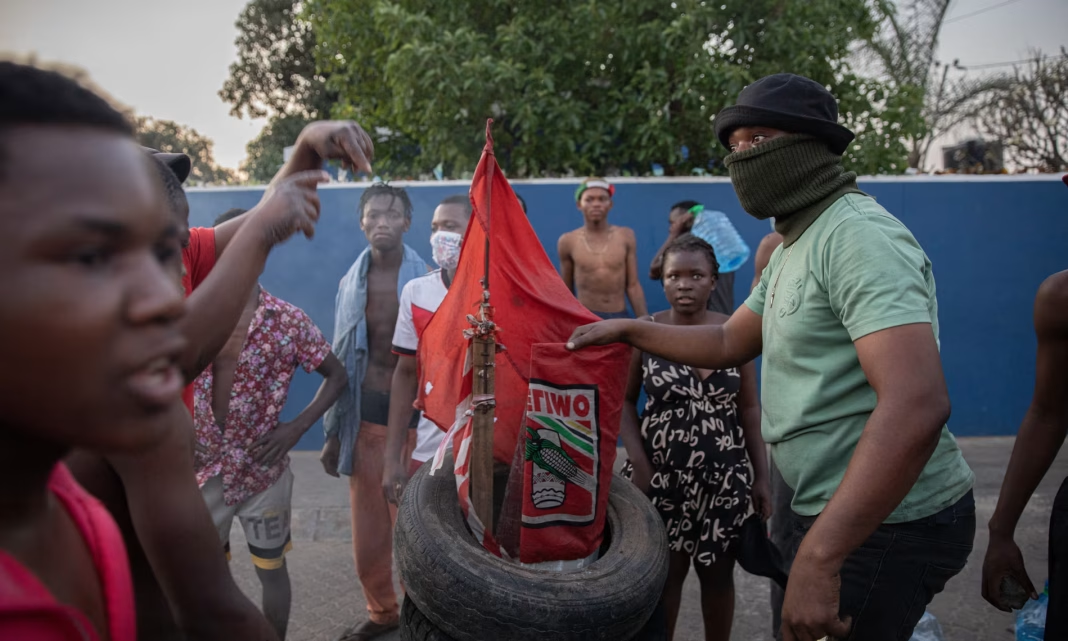On the night of October 25, in Mozambique’s capital Maputo, Silvio Jeremias was heading home from his job at a petrol station when he and his friends encountered a protest against that day’s election results.
The ruling Frelimo party’s presidential candidate, Daniel Chapo, was declared the winner with 70.7% of the vote, ensuring Frelimo’s continued control since Mozambique’s independence in 1975. However, there were widespread allegations of electoral fraud.
During the protest, one of many across the country, police fired live bullets, and Jeremias—who had a two-year-old daughter—was fatally shot. “This situation was a total shock for us. He was still very young,” said his friend Carmelita Chissico. Jeremias was one of at least 11 people reportedly killed by security forces during protests on October 24 and 25, with 50 others suffering serious gunshot wounds, according to Human Rights Watch.
Police claimed they fired live bullets only into the air to disperse crowds. Angela Uaela, a police spokesperson, stated that a woman was killed and five others injured by “stray bullets” when police tried to stop opposition Podemos supporters from seizing a gun.
Mozambique, one of the world’s poorest countries, has a youthful population—the average age is under 18—and growing opposition to Frelimo’s nearly five-decade rule. Venâncio Mondlane, the main opposition candidate in the recent election, inspired many young voters. Podemos claimed to have won 53% of the vote and 138 parliamentary seats and has submitted extensive documentation for a legal challenge against the results. However, the official election commission stated that Frelimo increased its seats to 195 in the 250-seat parliament, while Podemos won 31.

Before the election, civil society groups accused Frelimo of inflating the voter roll by nearly 900,000, in an electorate of 17 million. Mozambique’s Catholic bishops reported ballot-stuffing, and EU observers noted irregularities and result tampering.
On October 19, amid mounting allegations of fraud, lawyer Elvino Dias and filmmaker Paulo Guambe, a Podemos official, were shot dead by unknown assailants. Human rights researchers have noted a pattern of killings targeting opposition figures, journalists, activists, and lawyers with no justice served.
Hilário Lole, spokesperson for the National Criminal Investigation Service, said it was “premature” to determine who was behind the killings. António Niquice, a member of Frelimo’s central committee, expressed shock over the violence and called for accountability.
In an alarming incident on October 21, plainclothes police allegedly fired directly at Mondlane as he held a press conference at the location where Dias and Guambe had been killed. “They started firing real bullets directly at… Venâncio,” said Amade Ali, one of Mondlane’s bodyguards, who was struck in the cheekbone by a bullet.
For Jeremias’s loved ones, grief has merged with demands for political change. Last Tuesday, mourners dressed in white T-shirts bearing his image and holding up his photograph gathered around his coffin, calling for justice and democracy. Footage from STV, a local TV station, showed two young women holding signs in Portuguese that read, “You can kill me but don’t kill democracy.”


